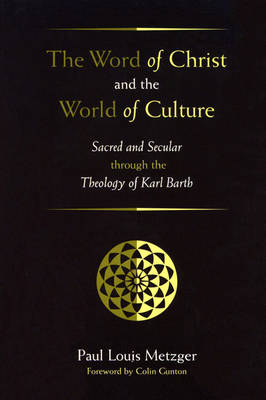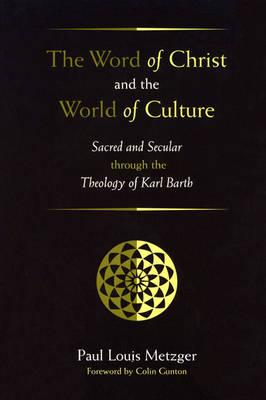
- Retrait gratuit dans votre magasin Club
- 7.000.000 titres dans notre catalogue
- Payer en toute sécurité
- Toujours un magasin près de chez vous
- Retrait gratuit dans votre magasin Club
- 7.000.000 titres dans notre catalogue
- Payer en toute sécurité
- Toujours un magasin près de chez vous
The Word of Christ and the World of Culture
Sacred and Secular Through the Theology of Karl Barth
Paul Louis Metzger
Livre broché | Anglais
53,95 €
+ 107 points
Description
Noting the difficulty of placing Karl Barth in traditional accounts of 'Christ and culture, ' Paul Metzger argues that Barth's incarnational christology provides the resources for a theology of culture that avoids the extremes of both divinization and secularization. This book helps us understand how Barth could say 'Nein' to general revelation on the one hand and 'Ja' to Mozart on the other. The 'word of Christ' is God's critical 'No' to the world of culture surrounded by an even greater covenantal 'Yes.' Metzger's study is a good introduction both to Barth's theology and to the theology of culture, and it convincingly shows that the gospel of Jesus Christ, far from being otherworldly, is in fact most-worldly -- the best word that the world can hear." --Kevin Vanhoozer Trinity Evangelical Divinity School That Karl Barth was the twentieth century's greatest theologian of culture has long been known but has never been adequately demonstrated. In this beautifully constructed book Paul Metzger shows how Barth's profoundly christological theology provides us with a basis for reflection on culture that goes further and deeper than the theologies of correlation by Barth's contemporaries. This volume will be welcomed by students of Barth and all who want to better understand the interaction of theology and culture." --Timothy Gorringe University of Exeter Karl Barth is nothing less than a 'neo-orthodox' theologian. His theology is specifically modern. It contains a normative theological theory of modern culture that is based on a differentiated 'synthesis' of the sacred and the secular. Paul Metzger's very clear book demonstrates convincingly that this central insight can lead to a general interpretation of Barth's dogmatic theology. I especially recommend this book to readers who want to know what the work of the great Swiss theologian has to offer to Christianity today." --Georg Pfleiderer University of Basel
Spécifications
Parties prenantes
- Auteur(s) :
- Editeur:
Contenu
- Nombre de pages :
- 276
- Langue:
- Anglais
Caractéristiques
- EAN:
- 9781597524070
- Date de parution :
- 01-10-05
- Format:
- Livre broché
- Format numérique:
- Trade paperback (VS)
- Dimensions :
- 156 mm x 230 mm
- Poids :
- 476 g







